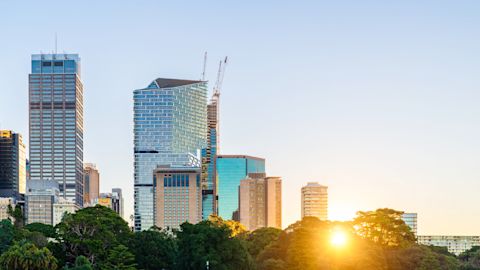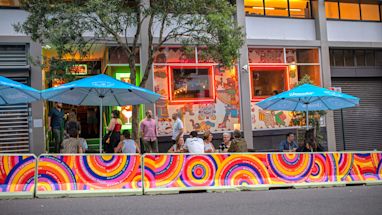The new planning controls were approved by Council at its October 2025 meeting, after they were met with wide-ranging support during the consultation period.
The new requirements will come into effect on 1 January 2026. They build on indoor air quality provisions adopted earlier in 2025, which restrict indoor gas appliances such as cooktops and heaters in new residential developments.
Lord Mayor of Sydney, Clover Moore AO said going all-electric was a logical response to the challenges posed by fossil fuels.
“Relying on gas is bad for the planet, bad for our finances and bad for our health,” the Lord Mayor said.
"Creating more energy efficient, healthier buildings which will meet future energy standards and avoid expensive retrofitting is an obvious next step."
The new controls
From 1 January 2027, the restrictions will expand to cover outdoor gas appliances such as water heaters in new residential buildings. The all-electric requirement will also be extended to new large commercial buildings, hotels and serviced apartment buildings.
Large commercial developments include office buildings greater than 1,000 square metres, hotels with more than 100 guest rooms and buildings with over 100 serviced apartments.
The new rules won’t apply to industrial uses or existing buildings.
Where a mixed-use development is affected by the planning controls, any food and beverage premises within the development will still able to use gas, provided there is adequate space and electrical capacity for future electrification.
A broader shift to electrification
The move follows our exploration of the benefits and challenges of all-electric buildings to create healthier homes and ease cost-of-living pressures.
With gas prices set to keep increasing due to market issues and supply risks, households in new all-electric developments would save around $626 a year in energy bills compared to gas-connected homes.
Electric systems are more efficient and have just one connection and daily rate.
Using electric induction cooktops instead of gas also offers significant health benefits.
Research has found that exposure to pollutants from gas cooktops can have health impacts comparable to passive smoking.
In drafting the proposal, the City of Sydney consulted with communities, industry and peak bodies to develop the best approach.
A total of 84 submissions on the proposals were received, with the majority welcoming the changes. Supporters included the Property Council, Ausgrid, Energy Consumers Australia and the Global Cooksafe Coalition.
Published 28 October 2025, updated 29 October 2025



